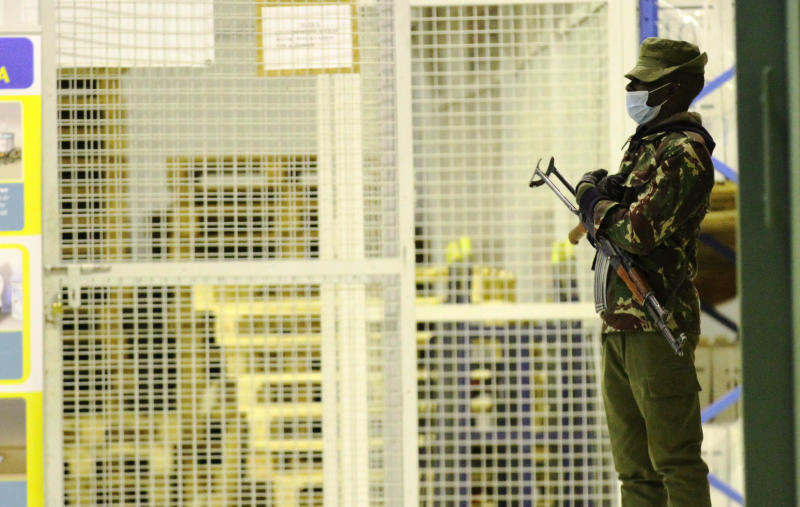×
The Standard e-Paper
Smart Minds Choose Us

A Police officer guards the first batch of AstraZeneca/Oxford vaccines under the COVAX scheme against the coronavirus disease (Covid-19) at the Kitengela cold rooms store on March 3, 2021. [Elvis Ogina, Standard]
What is the most delicate item you have ever carried? Eggs, perhaps?